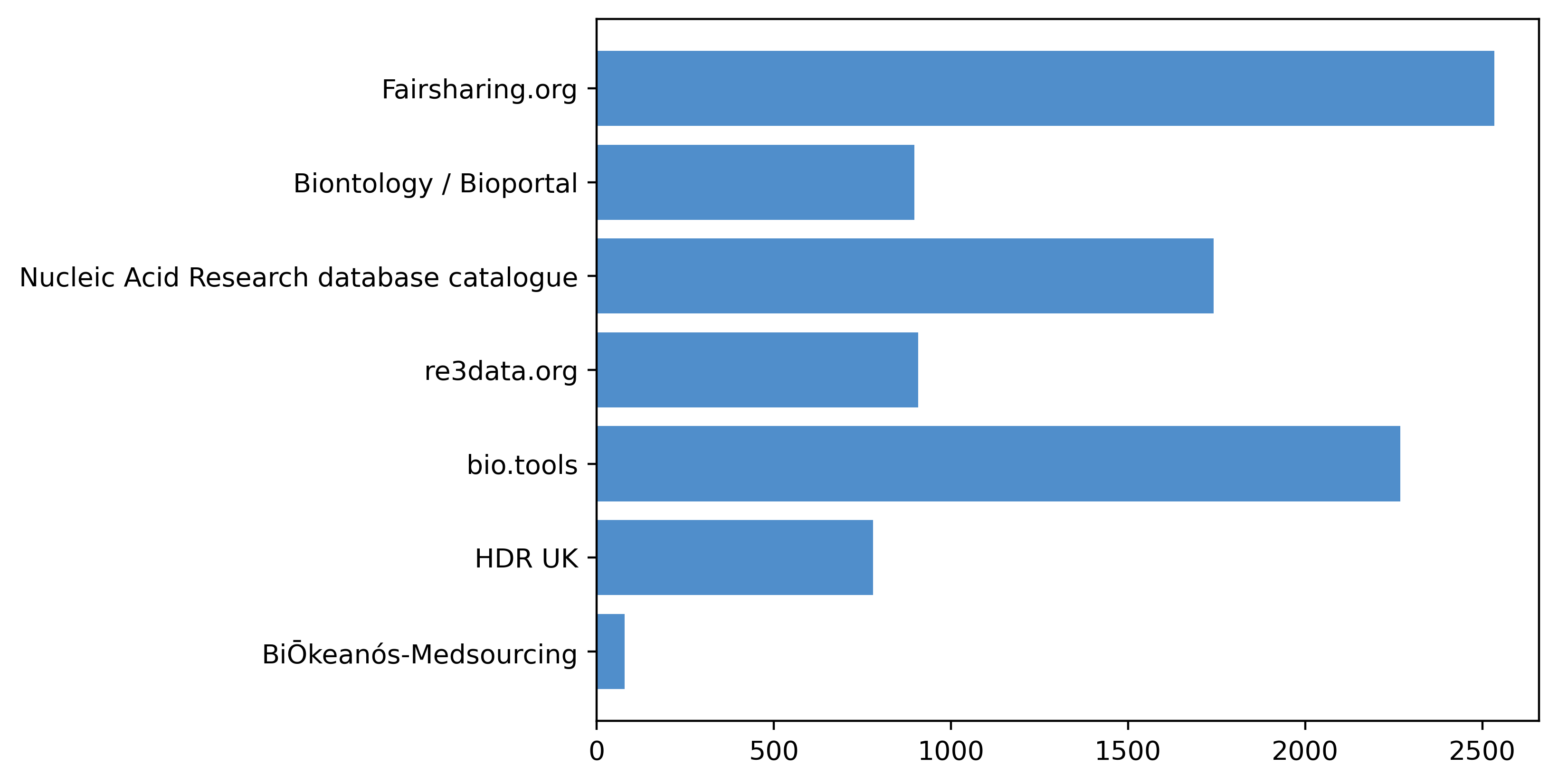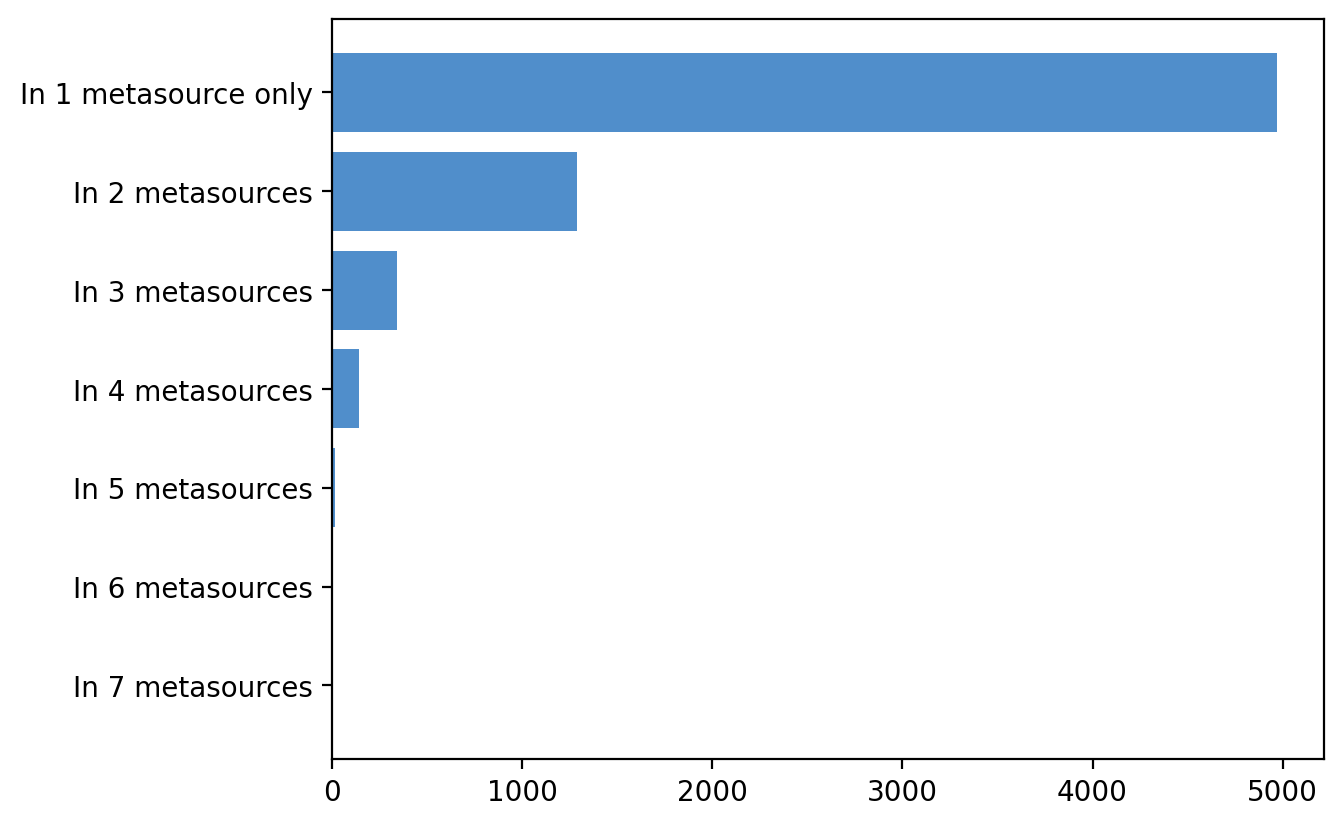About BiŌkeanós

A snake is an attribute of eponymous Greek god Ōkeanós / Oceanus.
Metasources
BiŌkeanós catalogues data from various other resources, we call those metasources. The easiest way to think about them is to consider them collections of life science and medical databases.
There are multiple metasources available, varying in purpose and scope. Each one is built with dedication by curators, often as part of their professional work or research. We also maintain our own set of datasource of interest.
Some specialise in particularly defined aspects of biological research, others are more general, spanning across multiple scientific disciplines. Some include various tools, some only open / freely available datasets, and some only provide information from a particular region. The extent of what information a metasource provides also varies. It ranges from a simple URL, potentially with a short overview of various quality to multiple classifications using dedicated ontologies, collections and recommendations.

The number of records extracted from each metasource as of 29/Dec/2025.

The distribution of the number of metasources individual databases can be found in as of 29/Dec/2025. The vast majority of them can only be retrieved from one or two metasources.
Because of those differences in goals, breadth, structure and definitions,
BiŌkeanós is instead built as a quick reference tool. It surfaces the data we found to be most useful for exploration and evaluating potential impact. It clearly indicates where each datapoint came from and allows to easily navigate back to the original metasource record for further investigation.
ReputationScore
ReputationScore is our proprietary algorithm evaluating how established and popular a database is.
It shows its
In our experience, a short indication of how widely applied a resource helps greatly to assess quickly whether it should be considered for further evaluation. It is advantageous when entering or working early in a given domain.
It is a heuristic, an incomplete judgement based on sparse data and assumptions about what is valuable. Despite its limitations, we find it helpful in our work and received generally positive opinions.
Please let us know any feedback that you may have after working with
Some of the factors used when calculating resource's ReputationScore :
- how often is it cited in the scientific literature?
- in how many metasources it can be found in?
- how often is it updated?
- how reputable are other databases it is linked to?
- are there any institutions recommending it?
- are there any large projects using it?
 Need help integrating and/or managing biomedical data?
Need help integrating and/or managing biomedical data?